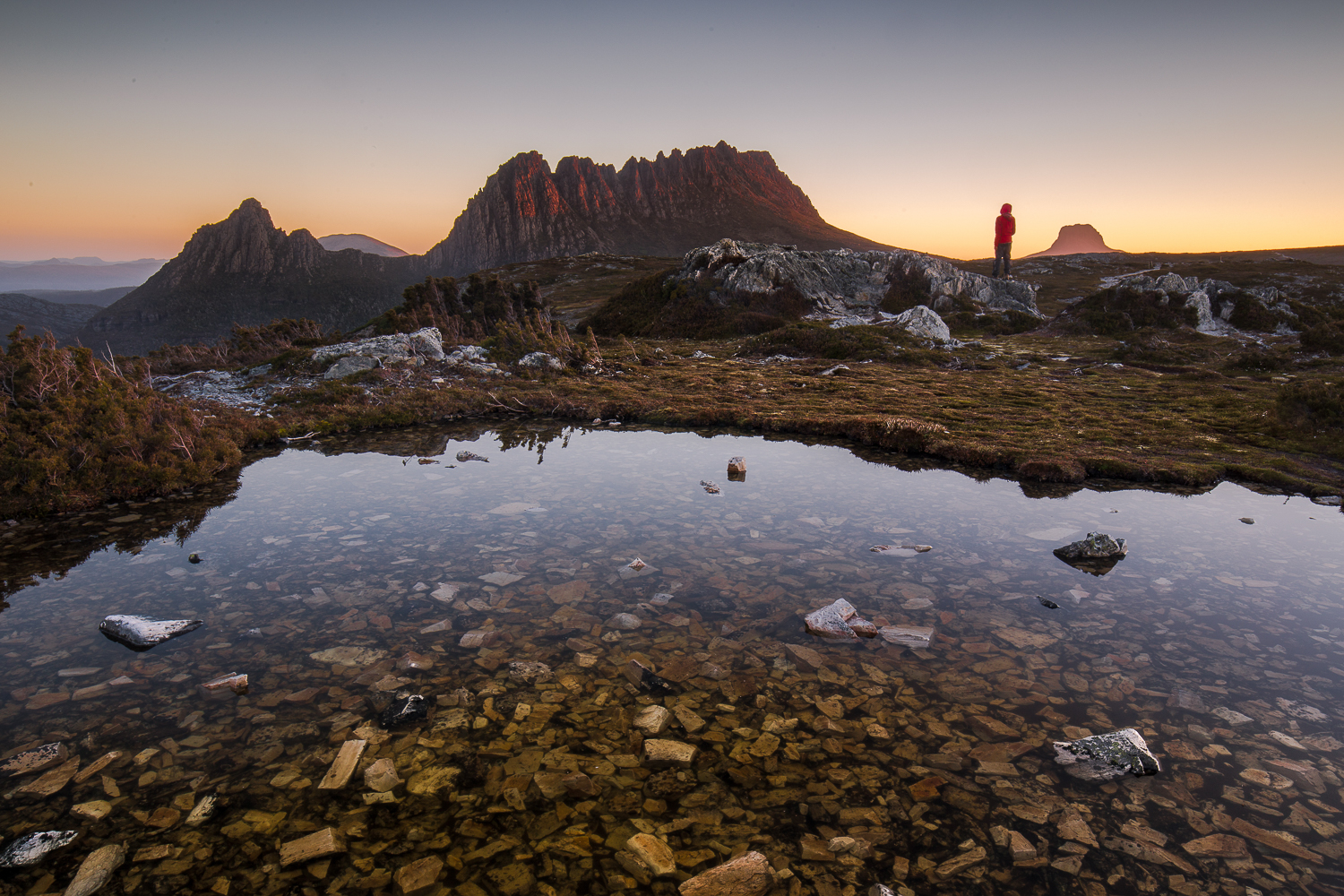Creekton Falls Area. Oct 2018. Remembering Bruce.
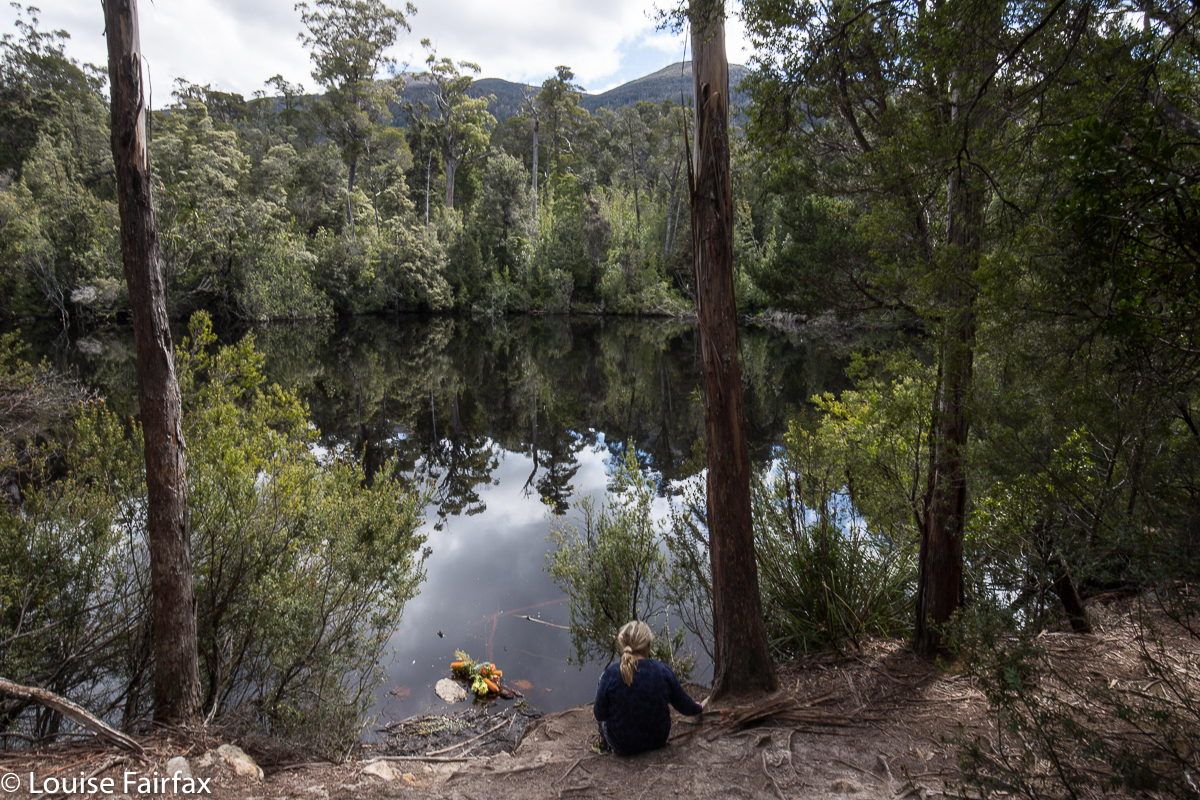 Surely it is inevitable that the Fairfax Family would gather at Creekton on this weekend, it being the anniversary of Bruce’s disappearance and death. Like my second daughter, I was not so sure about doing this. What would my feelings be when I entered this place where I last saw the person I loved so much, and have lived three quarters of my life with? He was my soulmate, the only person who has truly known and understood me, and the one with whom I shared experiences, ideas, joys and hopes – and disappointments, of course – and, the most amazing sharing of all, that of our joining together to bring two beautiful people into the world, and of combining forces to participate in life and love with them, to teach them values we as a couple thought were important, and to hopefully impart to them a love of things we love, as we feel they are worth loving. We also, of course, watched with delight as their personalities grew and their own stamp on life took place. And later still, we watched the same process playing itself out with young Gussy and Abby. Did you notice in the above how I slipped from past tense to present? This is part of the ‘problem’ faced when you have been part of someone, and they of you for so long. Bruce is gone, but he is still part of who I am, and I still live as if he were there, just not right now … until suddenly, and not when I expect it, or think it appropriate, I realise that it is all finished, and yet still I have these thought and behaviour habits that are not undone so easily.
Surely it is inevitable that the Fairfax Family would gather at Creekton on this weekend, it being the anniversary of Bruce’s disappearance and death. Like my second daughter, I was not so sure about doing this. What would my feelings be when I entered this place where I last saw the person I loved so much, and have lived three quarters of my life with? He was my soulmate, the only person who has truly known and understood me, and the one with whom I shared experiences, ideas, joys and hopes – and disappointments, of course – and, the most amazing sharing of all, that of our joining together to bring two beautiful people into the world, and of combining forces to participate in life and love with them, to teach them values we as a couple thought were important, and to hopefully impart to them a love of things we love, as we feel they are worth loving. We also, of course, watched with delight as their personalities grew and their own stamp on life took place. And later still, we watched the same process playing itself out with young Gussy and Abby. Did you notice in the above how I slipped from past tense to present? This is part of the ‘problem’ faced when you have been part of someone, and they of you for so long. Bruce is gone, but he is still part of who I am, and I still live as if he were there, just not right now … until suddenly, and not when I expect it, or think it appropriate, I realise that it is all finished, and yet still I have these thought and behaviour habits that are not undone so easily.
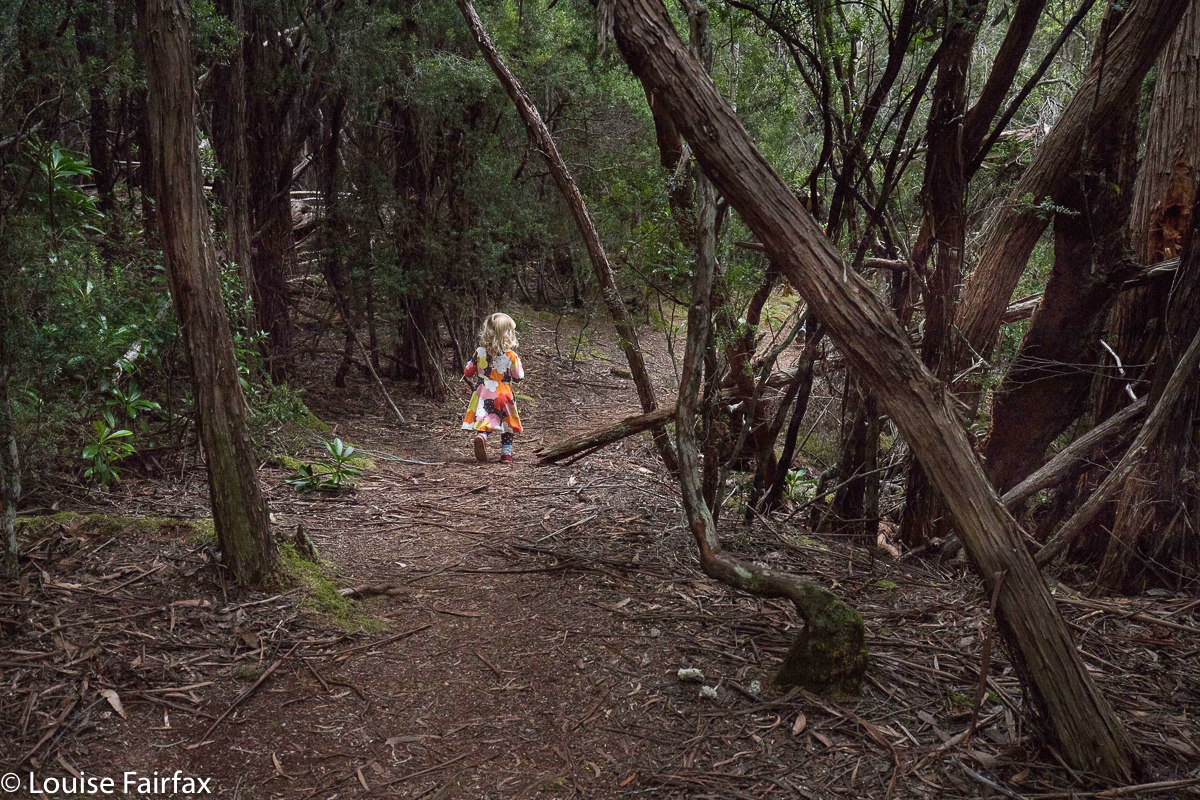 Creekton was a sad place, and a time for reflection, and yet other things – stupid, tiny things – can upset me far more. Last night I was terribly upset, as I saw an excellent film about Mary Shelley (whom I admire enormously), and I wanted to share my thoughts and reactions with Bruce, and to hear his, and I realised with terrible pain that there is no one in the whole world with whom I can share such things any more. Normally coming home from films or theatre, we would talk for hours about the themes or implications of what we had seen, but now I just had to bottle it all up. My dog does not understand Mary Shelley.
Creekton was a sad place, and a time for reflection, and yet other things – stupid, tiny things – can upset me far more. Last night I was terribly upset, as I saw an excellent film about Mary Shelley (whom I admire enormously), and I wanted to share my thoughts and reactions with Bruce, and to hear his, and I realised with terrible pain that there is no one in the whole world with whom I can share such things any more. Normally coming home from films or theatre, we would talk for hours about the themes or implications of what we had seen, but now I just had to bottle it all up. My dog does not understand Mary Shelley.
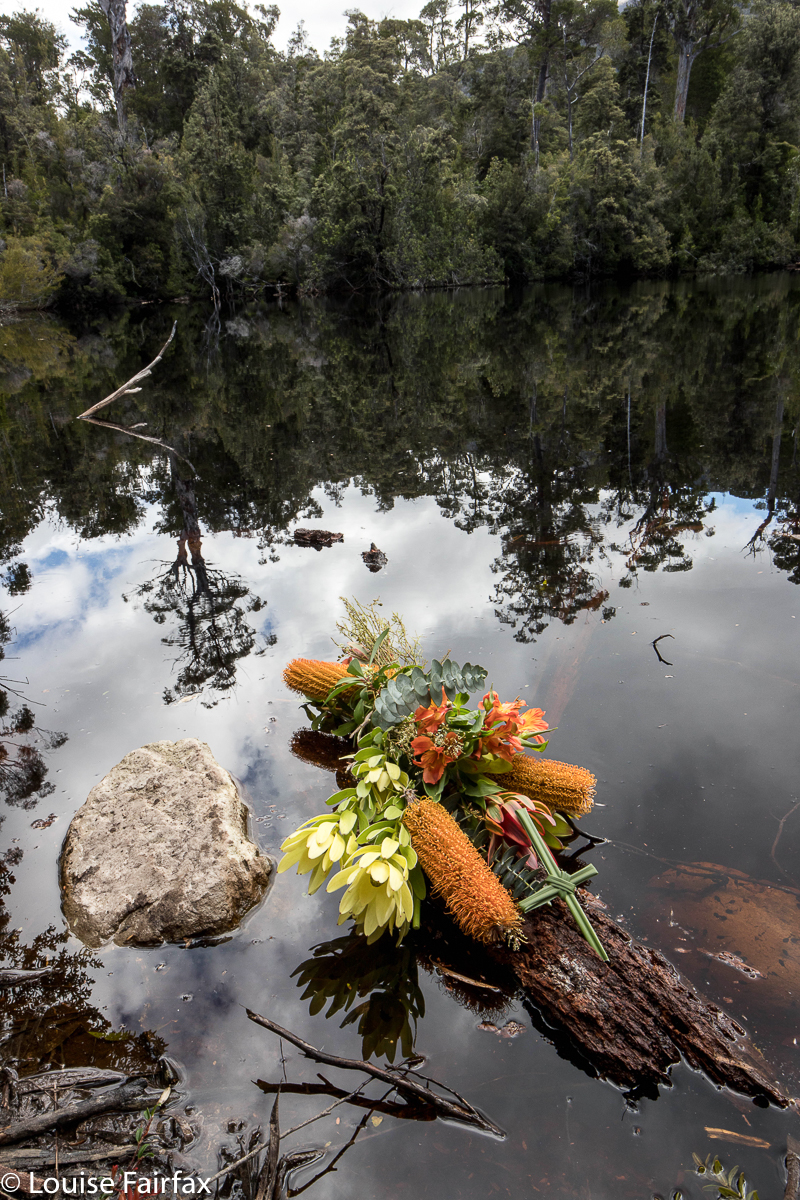 In Iceland, I saw a man with Parkinson’s, and I burst out howling, sobbing on my daughter’s shoulder. I was shocked by my reaction. And yet Creekton didn’t make me howl. Maybe I had my very strong guard up in anticipation. It was a pensive time, not without tears, but they were quiet ones. The flowers we took there to distribute caused me more tears than the place itself. Maybe that’s because a year ago, when I first encountered Creekton, I saw and felt nothing but beauty, not knowing what the future held. Then, when Bruce didn’t show up, I merely thought he was “mislaid”; I thought it was over-dramatic calling Search and Rescue, but others encouraged me to do it. I was only mildly worried come nightfall, as he was appropriately clad to endure a night out, wearing a puffer jacket and lined waterproof pants. However, at 9 or 10 or whatever, the helicopter came down to land near where I was (pacing up and down), so I went up to the two pilots to thank them so much for continuing to search for my husband after everyone else had gone home. I was filled with gratitude and wanted to express it. The noise of the ‘copter would also give Bruce hope if he was lying somewhere. It was only when they told me that they were not just searching visually with strong lights, but were also using infrared rays to detect body warmth that my heart sank. They had found no warmth in that forest apart from mine. Only then did I know despair, but it was dark and I went to the car to cry with Tessa (dog). I don’t associate that dreadful night with Creekton or the beauty that was there.
In Iceland, I saw a man with Parkinson’s, and I burst out howling, sobbing on my daughter’s shoulder. I was shocked by my reaction. And yet Creekton didn’t make me howl. Maybe I had my very strong guard up in anticipation. It was a pensive time, not without tears, but they were quiet ones. The flowers we took there to distribute caused me more tears than the place itself. Maybe that’s because a year ago, when I first encountered Creekton, I saw and felt nothing but beauty, not knowing what the future held. Then, when Bruce didn’t show up, I merely thought he was “mislaid”; I thought it was over-dramatic calling Search and Rescue, but others encouraged me to do it. I was only mildly worried come nightfall, as he was appropriately clad to endure a night out, wearing a puffer jacket and lined waterproof pants. However, at 9 or 10 or whatever, the helicopter came down to land near where I was (pacing up and down), so I went up to the two pilots to thank them so much for continuing to search for my husband after everyone else had gone home. I was filled with gratitude and wanted to express it. The noise of the ‘copter would also give Bruce hope if he was lying somewhere. It was only when they told me that they were not just searching visually with strong lights, but were also using infrared rays to detect body warmth that my heart sank. They had found no warmth in that forest apart from mine. Only then did I know despair, but it was dark and I went to the car to cry with Tessa (dog). I don’t associate that dreadful night with Creekton or the beauty that was there.
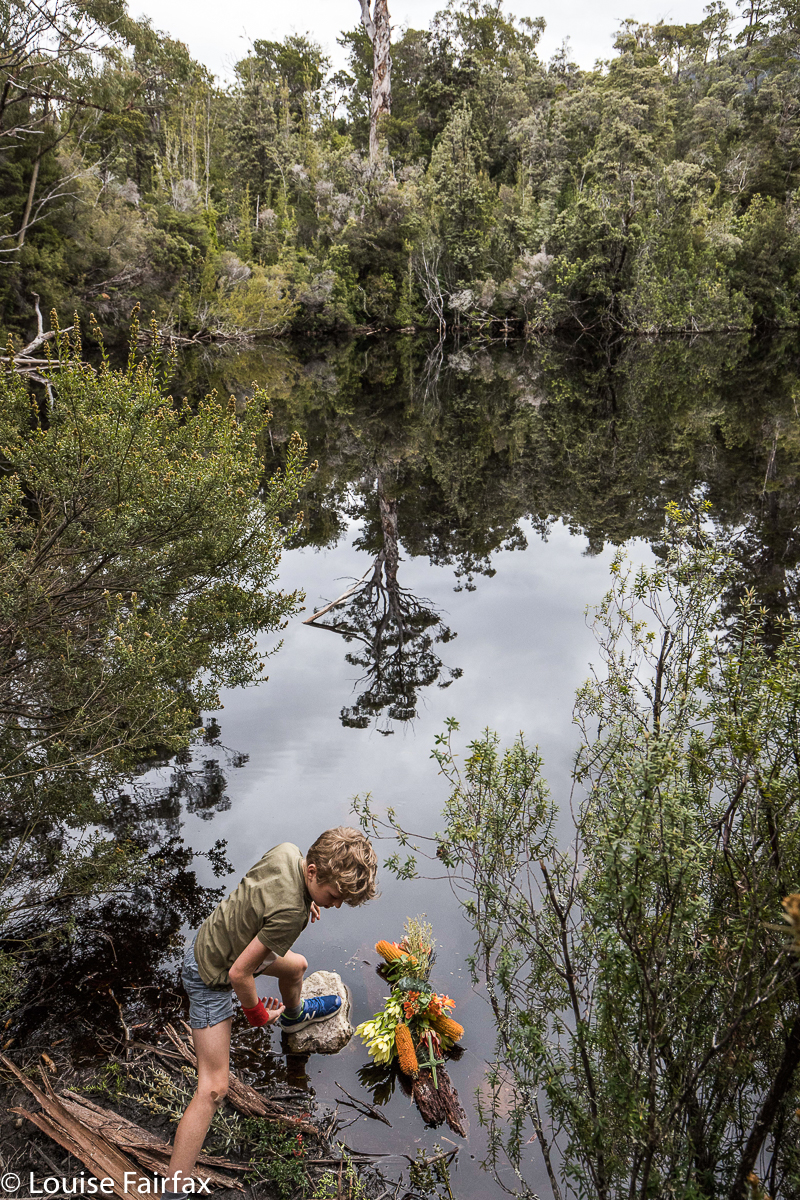 The Police kept giving me hope that all was not lost. I became a wound up machine that could not sit still, but needed movement – movement of any kind – to keep me from thinking. Up and down the path I paced, an automaton pushing time along. If I moved quickly enough and for long enough, maybe I wouldn’t need to think at all; I could get drunk on movement. Movement became my laudanum. Intellectually, I assimilated the fact that my husband was dead. Emotionally, I only arrive at full realisation maybe once or twice a month. It’s like I am mostly in shock still, and am protected against reality much of the time. It’s odd that we can have intellectual knowledge, and yet remain emotionally cushioned from an extreme event. Shock is the most astonishing protective mechanism. I can’t discern any evolutionary explanation for the existence of such a kind reaction to extreme pain, in that it does not directly (or indirectly, really) contribute to our survival. I was once hit badly by a car. It smashed the bones of my upper body, yet I didn’t feel a thing. I heard a bang (me being hit) and then I observed myself flying through space towards a railing. I concentrated hard to protect my spine against a bad landing. But pain wasn’t part of the equation at all. Nietzsche says that if we knew unveiled reality we would drown in horror. I think he’s right. Of course Schopenhauer agrees to sentiments like that.
The Police kept giving me hope that all was not lost. I became a wound up machine that could not sit still, but needed movement – movement of any kind – to keep me from thinking. Up and down the path I paced, an automaton pushing time along. If I moved quickly enough and for long enough, maybe I wouldn’t need to think at all; I could get drunk on movement. Movement became my laudanum. Intellectually, I assimilated the fact that my husband was dead. Emotionally, I only arrive at full realisation maybe once or twice a month. It’s like I am mostly in shock still, and am protected against reality much of the time. It’s odd that we can have intellectual knowledge, and yet remain emotionally cushioned from an extreme event. Shock is the most astonishing protective mechanism. I can’t discern any evolutionary explanation for the existence of such a kind reaction to extreme pain, in that it does not directly (or indirectly, really) contribute to our survival. I was once hit badly by a car. It smashed the bones of my upper body, yet I didn’t feel a thing. I heard a bang (me being hit) and then I observed myself flying through space towards a railing. I concentrated hard to protect my spine against a bad landing. But pain wasn’t part of the equation at all. Nietzsche says that if we knew unveiled reality we would drown in horror. I think he’s right. Of course Schopenhauer agrees to sentiments like that.
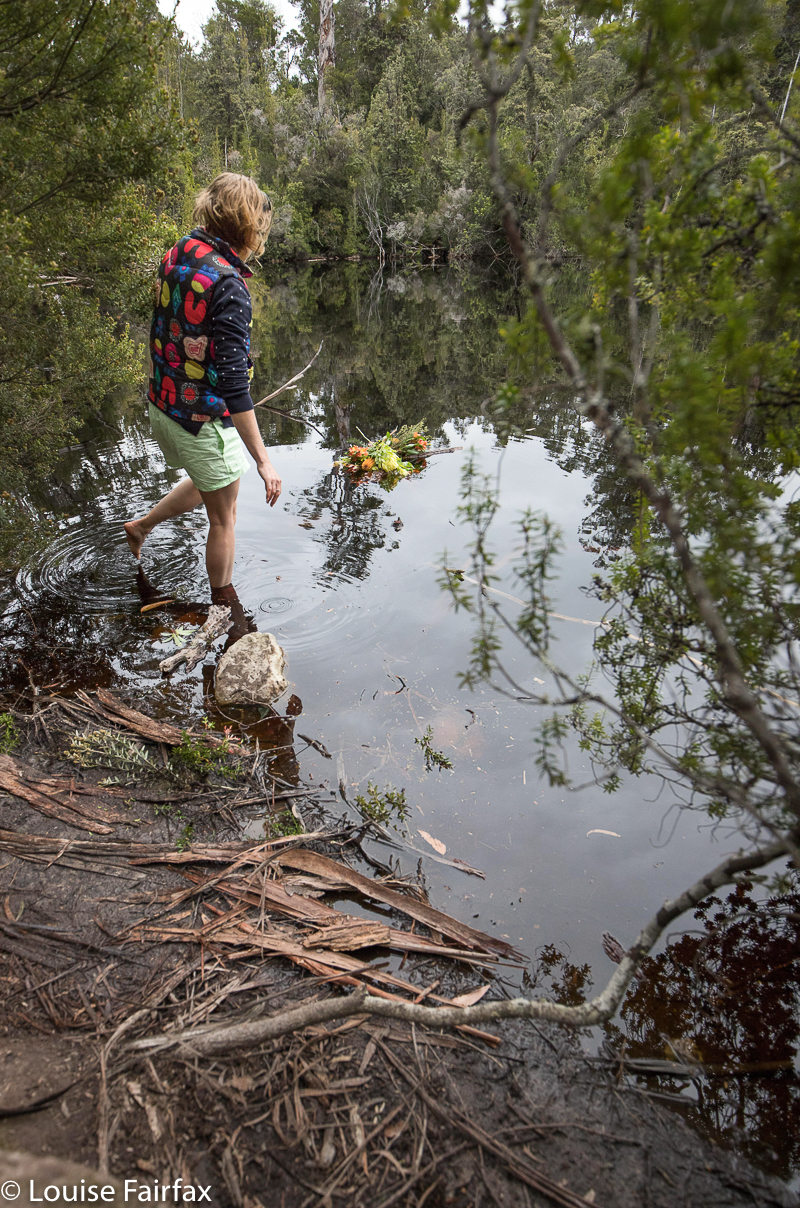 And so, we gathered. We walked the walk to Duckhole Lake. I had real trouble stopping myself from searching for Bruce, as if it were not a total absurdity that after all that searching by so many people he could be found near the track. But my eyes kept scanning to left and right, searching for that telltale metallic red of his jacket. We built a little raft of flowers and made a cutting-grass cross. Abby (aged two) added decorations of her own. Gussy (seven) both added a dried forest-fungus he had found and liked, and built his own raft of barks and lichen. We floated them out to the centre of the lake. We three girls had our own quiet time, and also sang some special songs. And then it was time to take the children further along the track on what was more a bushwalk and not quite so much a poignant pilgrimage. I have convinced myself that Bruce died painlessly from pneumonia. I didn’t like observing the thickness of the bush and being prodded to contemplate the notion that he could have gone off the track in this section and had a less benign ending. I concentrated on the job at hand, of getting two very young people across a n extremely demanding track. Because most readers using this blog are researching it to find routes and suitable tracks, I will give that section of the day its own blog, so they don’t have to wade through grief in order to find out what the Creekton Track is like for a person with no emotive associations.
And so, we gathered. We walked the walk to Duckhole Lake. I had real trouble stopping myself from searching for Bruce, as if it were not a total absurdity that after all that searching by so many people he could be found near the track. But my eyes kept scanning to left and right, searching for that telltale metallic red of his jacket. We built a little raft of flowers and made a cutting-grass cross. Abby (aged two) added decorations of her own. Gussy (seven) both added a dried forest-fungus he had found and liked, and built his own raft of barks and lichen. We floated them out to the centre of the lake. We three girls had our own quiet time, and also sang some special songs. And then it was time to take the children further along the track on what was more a bushwalk and not quite so much a poignant pilgrimage. I have convinced myself that Bruce died painlessly from pneumonia. I didn’t like observing the thickness of the bush and being prodded to contemplate the notion that he could have gone off the track in this section and had a less benign ending. I concentrated on the job at hand, of getting two very young people across a n extremely demanding track. Because most readers using this blog are researching it to find routes and suitable tracks, I will give that section of the day its own blog, so they don’t have to wade through grief in order to find out what the Creekton Track is like for a person with no emotive associations.
